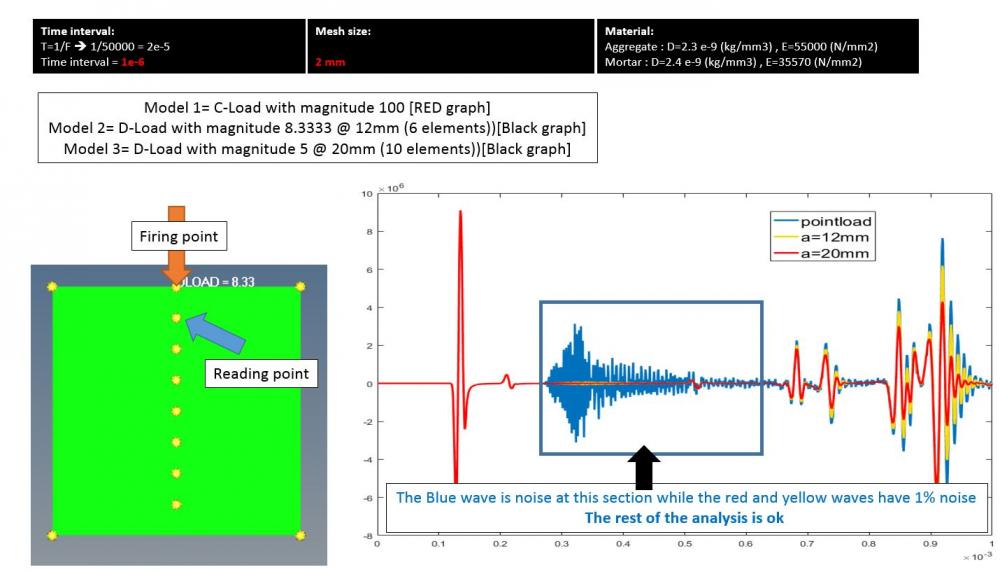I have a simple 2-D square geometry with the length of 5 x 2 m. I need to assign a point load on the model to simulate wave propagation in the solid medium with Abaqus. the distance from the firing point and the reading point is 25 cm. I have used Gaussian wave with the frequency of 50kHz. The material property that I used is concrete and I have used Abaqus material, solid section, CPE4R element type, and dynamic explicit analysis. However, as you can see in the picture when I use point load (i.e C-load), there is a huge high-frequency noise, which should not be there! while the noise magnitude drastically decreases when same equivalent pressure (i.e. D-load) is used. I have to mention that, the noise decreases with wider D-Load. Even, when I use D-Load on just one element, which is very close to a point-load, the noise magnitude is significantly small. except for the noise, the rest of analysis is correct (P-wave, S-wave, and reflections are all on expected time and seems to be correct). Does anyone have any idea that what the problem is coming from?
Thank you.
<?xml version="1.0" encoding="UTF-8"?>